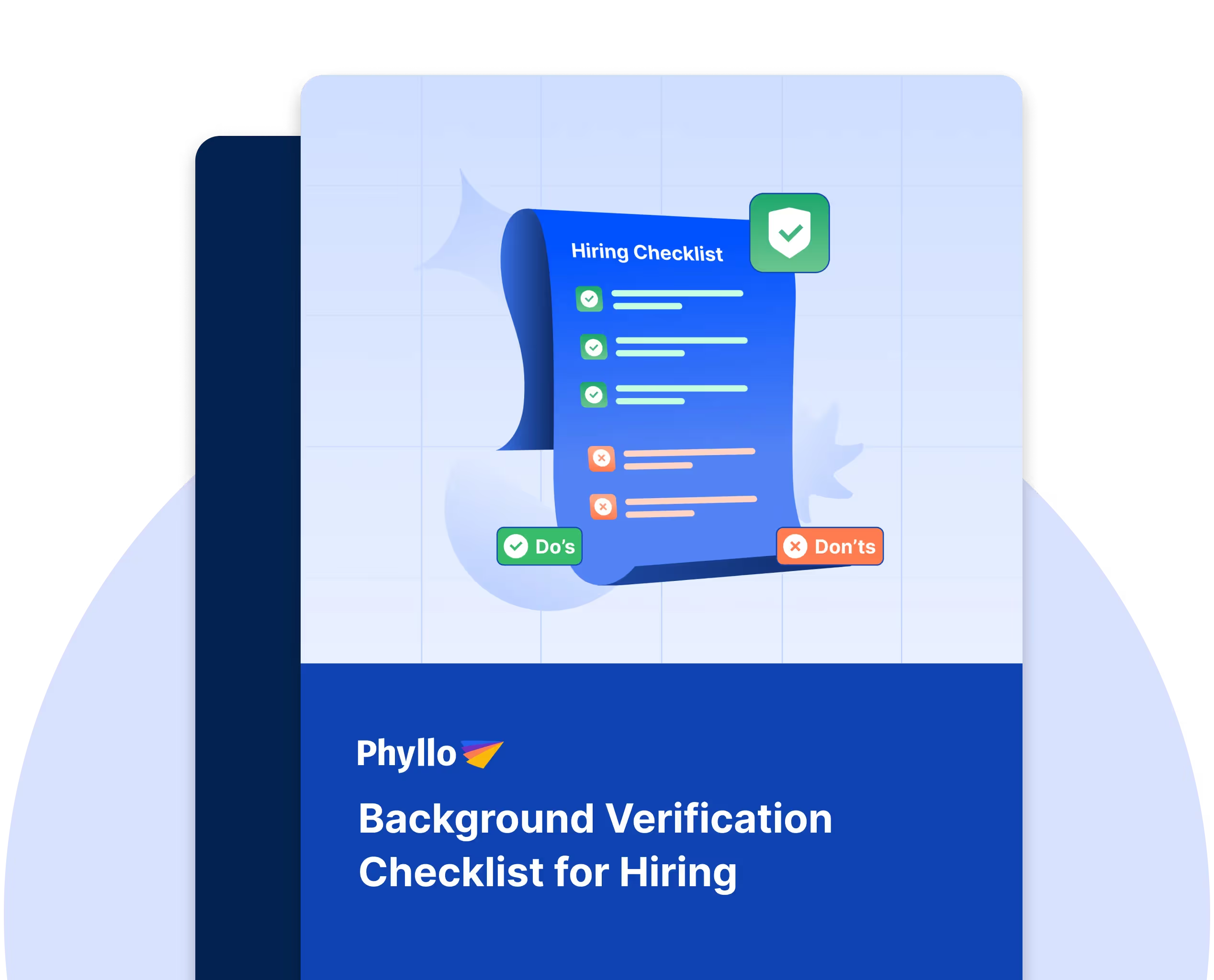The traditional model of background checks is no longer sufficient in an era where people’s digital footprints reveal more about them than resumes or references ever could. As hiring processes, influencer collaborations, and brand reputation become increasingly dependent on online behavior, social media background checks have become essential for employers, marketers, and compliance teams.
However, conducting these checks manually is inefficient, error-prone, and inconsistent. That’s why API integration is becoming the backbone of modern background screening systems. In this blog, we explore how APIs enable scalable, accurate, and automated social media checks and why integrating them into your vetting workflows is no longer optional.
The Rise of Social Media in Background Checks
Before we dive into the technical aspect of APIs, it’s important to understand how social media became a critical part of background investigations.
Digital Behavior Now Reflects Real-World Identity
With over 5 billion people active on social media, it’s clear that platforms like Instagram, LinkedIn, Twitter, TikTok, and Facebook are not just for entertainment. They reflect people’s values, opinions, habits, and behaviors. For recruiters and brands alike, analyzing this public data can help assess cultural fit, professionalism, brand safety risks, and more.
Employers and Brands Are Increasingly Turning to Online Checks
Whether it’s to avoid workplace misconduct or prevent reputational damage, organizations are now performing social media background checks as part of their hiring or partnership processes. However, manually searching for, reviewing, and interpreting social media data is time-consuming and inconsistent.
This is where technology, especially social media APIs, becomes essential.
What Is API Integration in the Context of Background Checks?
Let’s clarify what API integration means and why it’s relevant to the background screening process.
Defining API Integration
API (Application Programming Interface) integration refers to connecting different software systems so they can exchange data in real time. In the context of social media checks, API integration allows background screening platforms, HR tools, or brand vetting systems to access data from social platforms programmatically.
Instead of scraping data or relying on screenshots, APIs offer secure, structured, and scalable access to key information.
Types of Social Media APIs Used in Vetting
Depending on the use case, various social media APIs can be integrated, including:
- Social listening APIs to monitor sentiment and keyword usage
- Profile APIs for influencer screening or audience analysis
- Engagement and interaction APIs to study behavioral trends
- Content history APIs to review past posts and media
👉 Learn more about Phyllo’s Social Listening API and how it provides clean, structured access to public creator data in real time.
Why Manual Social Media Background Checks Fall Short
Before exploring the benefits of API-powered screening, it’s worth recognizing the limitations of traditional or manual approaches to social media background checks.
Manual Checks Are Time-Consuming and Inconsistent
A recruiter or brand manager manually checking a candidate’s Instagram or an influencer’s Twitter posts may spend hours gathering data, often without clear criteria. This leads to:
- Subjectivity and bias in assessments
- Limited historical data coverage
- Missed posts, hashtags, or interactions
- Difficulty replicating checks across multiple profiles
Risk of Incomplete or Unverifiable Data
Manual vetting often involves screenshots, unverified social handles, or third-party reviews. This introduces risks, including:
- Data inaccuracies
- Legal non-compliance if data is misused
- Inability to track changes over time
API-based checks solve these challenges by offering real-time, authenticated data directly from the source.
How API Integration Transforms Social Media Background Checks
Now that the limitations of manual methods are clear, let’s explore how API integration transforms the way companies and platforms perform social media background checks.
Real-Time Data Access and Updates
APIs provide real-time access to public social data, ensuring that the information used in a background check is current. This is crucial when:
- Vetting a job candidate before offer rollout
- Screening an influencer before a campaign launch
- Monitoring brand ambassadors during live promotions
With API integration, background screening doesn’t rely on outdated or static content.
Automated Workflows for Scale
APIs allow systems to automate the end-to-end vetting process from data retrieval to analysis to decision-making. This enables:
- Screening hundreds of candidates or influencers at once
- Trigger-based checks during onboarding or campaign planning
- Integration with ATS (Applicant Tracking Systems) or CRM platforms
👉 Phyllo’s Social Screening solution offers plug-and-play APIs to automate and scale your online vetting workflows.
Comprehensive Behavioral Analysis
Social media APIs go beyond simple keyword checks. With the right integrations, companies can:
- Analyze tone and sentiment over time
- Detect discriminatory language, toxicity, or policy violations
- Identify consistent patterns in engagement and content types
This ensures a more nuanced and fair analysis that accounts for context.
Transparent and Compliant Vetting
Using authorized APIs ensures that your vetting process is compliant with privacy laws like GDPR, CCPA, or industry-specific guidelines. Unlike scraping or manual data collection, APIs offer structured and secure access to public data.
This is especially important in regions where data rights are strictly regulated.
Use Cases: Who Needs Social Media API Integration?
API-powered social screening has use cases across industries and roles. Let’s explore a few key scenarios.
HR Teams and Recruiters
Recruiters use social screening to assess whether candidates reflect company values and demonstrate professionalism online.
API integrations help HR teams:
- Automate pre-employment screening
- Detect content misaligned with company culture
- Stay compliant with fair hiring practices
Marketing and Brand Safety Teams
For brands, influencer partnerships carry significant reputational risks. One controversial tweet can derail a campaign.
By integrating social media APIs, marketing teams can:
- Conduct in-depth influencer screening
- Monitor ongoing content for brand safety
- Flag creators who engage in polarizing or harmful discussions
👉 Check out Phyllo’s solution for Influencer Vetting and Brand Safety to see how automation supports safe creator partnerships.
Government, Education, and Finance Institutions
Sectors like education and finance are under higher scrutiny due to regulatory concerns. Vetting social media activity helps institutions:
- Maintain reputational integrity
- Flag high-risk individuals
- Ensure public-facing professionals uphold ethical standards
Technical Advantages of API Integration in Vetting Systems
Beyond functionality, API integration offers robust technical advantages that make social media checks more scalable and reliable.
1. Modular and Flexible Architecture
APIs can be integrated into existing systems like onboarding portals or campaign dashboards without needing to build from scratch.
2. Speed and Efficiency
Programmatic access to data reduces the time it takes to complete a check from hours or days to minutes or seconds.
3. Customization and Filters
With APIs, developers can set parameters like flagging specific keywords, scanning for engagement spikes, or filtering by sentiment.
4. Ongoing Monitoring Capabilities
Unlike static checks, APIs enable continuous monitoring, helping teams spot new risks in real time, even after hiring or onboarding.
Why This Matters for Influencer Screening
Influencer screening is one of the fastest-growing applications of API-powered social media checks. With creator partnerships often happening at scale and under tight deadlines, automation is key.
Influencers Represent Your Brand
An influencer’s old YouTube video or controversial TikTok might not align with your brand’s image or values. API integration allows vetting platforms to uncover such risks instantly.
Reputation Can Shift Overnight
Influencers are public figures, and their reputations can change rapidly. Continuous monitoring through APIs helps brands stay ahead of potential PR disasters.
Scale Demands Automation
For campaigns involving 50 to 500 creators, manual screening is not feasible. APIs make it possible to screen everyone before activation and monitor them during the campaign.
👉 Dive deeper into Phyllo’s Social Media Intelligence to understand how APIs help you assess influencer risk and reputation in real time.
Future Trends in Social Media Screening
Looking ahead, social media background checks will only grow in complexity and importance. Here are some trends shaping the future:
AI + APIs for Smarter Vetting
The combination of AI and APIs allows platforms to provide contextual interpretations of online behavior, including sarcasm, irony, and regional nuance.
Expansion Across Platforms
APIs are expanding to cover emerging platforms like Threads, Discord, and new decentralized social networks, ensuring holistic checks.
Ethical and Inclusive Vetting
Platforms are evolving to reduce bias in screening and prioritize ethical, explainable AI, ensuring fairness in assessments.
Final Thoughts
Modern social media background checks are no longer a luxury; they are a necessity. Whether you’re hiring talent, onboarding creators, or protecting your brand’s reputation, having reliable, scalable, and real-time insights into public digital behavior is critical.
Manual methods fall short in today’s fast-paced, high-stakes environment. API integration offers the infrastructure needed to automate vetting, reduce risk, and build trust with stakeholders.
If you’re serious about elevating your hiring or influencer campaigns, it’s time to invest in social media API solutions that deliver speed, accuracy, and peace of mind.
FAQs
1. What is API integration in social media background checks?
API integration refers to connecting software tools to access real-time data from social media platforms. It helps automate and scale background checks using secure, structured data.
2. How does a social media API work in vetting?
Social media APIs pull data such as posts, comments, interactions, and engagement from public profiles, which can then be analyzed for sentiment, behavior, and risk factors.
3. Why are manual social media checks unreliable?
Manual checks are time-consuming, prone to bias, and may miss important red flags. They are also difficult to scale and cannot provide real-time insights.
4. Can I use APIs to vet influencers before a campaign?
Yes, APIs can help automate influencer screening by pulling data from their social accounts, analyzing past behavior, and identifying any brand safety concerns.
5. Is social media screening legal and ethical?
When done through authorized APIs and within public data access guidelines, social media screening is both legal and ethical. Always ensure compliance with data privacy laws like GDPR or CCPA.
6. What types of behavior can APIs flag?
APIs can detect hate speech, profanity, toxicity, political extremism, or other content types that may be flagged as high risk depending on brand policies.
7. How can Phyllo help with social media background checks?
Phyllo offers powerful tools like the Social Listening API, Social Media Intelligence, Influencer Vetting for Brand Safety, and Social Screening to automate and scale your social background checks.
8. Can social media background checks be monitored continuously?
Yes. With API integration, brands and HR teams can set up continuous monitoring to flag risks as they appear, providing ongoing protection and insight.











.avif)
.avif)
.avif)
.avif)